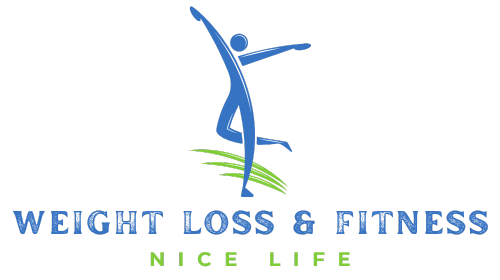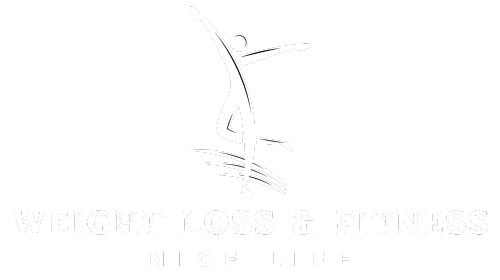In this article, we will explore the menopause diet 5 day plan to lose weight. Menopause represents a natural biological phenomenon signifying the conclusion of a woman’s reproductive phase, usually taking place during her late 40s or early 50s.
It signifies the cessation of menstrual cycles and a decrease in the production of hormones like estrogen and progesterone. Menopause is a significant life stage that can bring about physical, emotional, and hormonal changes.
The purpose of the 5-day menopause diet plan is to provide women with a structured and practical approach to managing their weight during this transformative life stage.
I. Understanding Menopause and Weight Gain
A. Hormonal Changes During Menopause
- Menopause is characterized by a significant hormonal shift, primarily the decline in estrogen production by the ovaries.
- Estrogen plays a crucial role in regulating metabolism and fat distribution in the body.
- As estrogen levels decrease, it can lead to changes in how the body stores and utilizes fat, often resulting in weight gain, particularly in the abdominal region.
- Hormonal imbalances during menopause can also contribute to other symptoms such as hot flashes and mood swings.
B. Factors Contributing to Weight Gain
– Several factors contribute to weight gain during menopause:
- Slower Metabolism: With age, the metabolism naturally slows down, making it easier to gain weight.
- Muscle Loss: Muscle mass tends to decrease, leading to a lower resting metabolic rate.
- Lifestyle Changes: Menopausal women may experience changes in physical activity levels and dietary habits.
- Stress and Sleep: Increased stress and sleep disturbances can disrupt hormonal balance and contribute to weight gain.
- Genetics: Genetic predispositions can influence how the body responds to hormonal changes.
C. Health Risks Associated with Excess Weight During Menopause
– Excess weight during menopause can pose various health risks:
- Cardiovascular Disease: Weight gain, especially abdominal fat, is linked to an increased risk of heart disease, high blood pressure, and high cholesterol.
- Diabetes: Menopausal weight gain can contribute to insulin resistance and type 2 diabetes.
- Osteoporosis: Changes in body composition and hormonal imbalances may affect bone density, increasing the risk of fractures.
- Joint Problems: Excess weight can strain joints, leading to conditions like osteoarthritis.
- Breast Cancer: Obesity after menopause is associated with a higher risk of breast cancer.
II. the menopause diet 5 day plan to lose weight – Day 1: Preparation and Goal Setting
A. Setting Realistic Weight Loss Goals
- The first step in any successful dietary plan is setting realistic and achievable weight loss goals.
- Menopausal women should consider factors such as their current weight, health status, and lifestyle when determining these goals.
- Realistic goals ensure motivation and prevent frustration, leading to long-term success.
B. Assessing Current Dietary Habits
- Before embarking on the 5-day menopause diet plan, it’s crucial to assess one’s current dietary habits.
- This assessment helps identify areas for improvement, such as identifying high-calorie or unhealthy food choices.
- Keeping a food diary can be a helpful tool in understanding eating patterns and identifying areas that need adjustment.
C. Creating a Meal Plan for the Next 5 Days
- To kickstart the menopause diet 5 day plan to lose weight, it’s essential to create a structured meal plan for the upcoming five days.
- The meal plan should be well-balanced, incorporating a variety of nutrient-dense foods from all food groups.
- Planning meals in advance helps ensure that healthy food choices are readily available and reduces the likelihood of reaching for unhealthy snacks or fast food.
III. Day 2: Balanced Nutrition
A. Importance of Balanced Meals
- Day 2 of the menopause diet 5 day plan to lose weight emphasizes the crucial role of balanced meals in achieving weight loss and maintaining overall health.
- Balanced meals provide essential nutrients, stabilize blood sugar levels, and help control cravings.
- For menopausal women, balanced nutrition can mitigate hormonal fluctuations and support a healthy metabolism.
B. Choosing Nutrient-Dense Foods
- Nutrient-dense foods are those that provide a high amount of essential nutrients relative to their calorie content.
- Menopausal women should prioritize foods rich in vitamins, minerals, fiber, and lean protein.
- Examples of nutrient-dense foods include fruits, vegetables, whole grains, lean proteins (chicken, fish, tofu), and low-fat dairy products.
- Minimizing processed foods, sugary snacks, and high-calorie, low-nutrient options is essential for sustainable weight loss.
C. Meal Planning for Breakfast, Lunch, and Dinner
- Planning well-balanced meals for breakfast, lunch, and dinner is a key component of Day 2.
- Breakfast should include complex carbohydrates, protein, and healthy fats to provide energy and promote satiety.
- Lunch and dinner should consist of lean protein sources, vegetables, and whole grains to support muscle maintenance and curb overeating.
- Maintaining portion control remains crucial to prevent excessive calorie consumption.
IV. Day 3: Portion Control
A. Understanding Portion Sizes
- Day 3 of the menopause diet 5 day plan to lose weight delves into the critical concept of portion control.
- Understanding portion sizes is vital because it helps prevent overeating and ensures calorie intake aligns with weight loss goals.
- Many people underestimate portion sizes, which can lead to consuming more calories than necessary.
B. Strategies for Controlling Portion Sizes
– Effective strategies for controlling portion sizes, such as:
- Using measuring cups and food scales to accurately assess portion sizes.
- Learning to estimate portion sizes visually, e.g., a palm-sized portion of protein, a fist-sized portion of carbohydrates.
- Avoiding second helpings and practicing mindful eating by savoring each bite.
- Being aware of portion distortion when dining out or consuming packaged foods.
V. Day 4: Healthy Snacking
A. Selecting Healthy Snack Options
- Day 4 of the menopause diet 5 day plan to lose weight focuses on the role of healthy snacking in maintaining energy levels and preventing overeating during meals.
- Healthy snacks can provide essential nutrients, curb hunger between meals, and support weight loss.
- Examples of healthy snack options include fresh fruits, vegetables with hummus, yogurt, nuts, and whole-grain crackers.
B. Managing Cravings and Emotional Eating
- Due to hormonal shifts and increased stress levels, menopausal women frequently encounter cravings and resort to emotional eating.
- Day 4 addresses strategies for managing these challenges, including recognizing triggers, finding alternative coping mechanisms, and practicing mindfulness.
- Understanding the difference between true hunger and emotional hunger is essential in curbing unnecessary snacking.
C. Incorporating Snacks into the Diet Plan
- To successfully integrate snacks into the diet plan, Day 4 encourages women to plan and prepare healthy snacks in advance.
- It emphasizes the importance of portion control even when snacking and provides guidelines for incorporating snacks into daily calorie goals.
- Healthy snacking can help maintain blood sugar levels, prevent energy dips, and support overall dietary balance.
VI. Day 5: Physical Activity
A. Role of Exercise in Menopause Weight Loss
- Day 5 of the menopause diet 5 day plan to lose weight highlights the significant role of exercise in achieving and maintaining weight loss during menopause.
- Regular physical activity helps increase calorie expenditure, build lean muscle mass, and boost metabolism.
- Exercise also plays a vital role in managing menopausal symptoms, including mood swings and sleep disturbances.
B. Types of Exercises Suitable for Menopausal Women
– Not all exercise routines are created equal, especially for menopausal women who may have unique needs and considerations.
– Day 5 discusses various types of exercises suitable for this demographic, including:
- Cardiovascular exercises (e.g., walking, swimming, cycling) to improve heart health and burn calories.
- Strength training exercises to build muscle mass and support metabolism.
- Flexibility and balance exercises (e.g., yoga, Pilates) to maintain joint health and prevent injuries.
- Low-impact exercises to reduce stress on joints, ideal for women with joint issues.
VII. Long-Term Sustainability
A. Transitioning to a Sustainable Long-Term Diet Plan
- Day 8 of the menopause diet 5 day plan to lose weight shifts the focus from short-term changes to long-term sustainability.
- It emphasizes the importance of transitioning from the 5-day plan to a sustainable, balanced diet that can be maintained over time.
- Sustainable dietary choices should align with personal preferences, health goals, and nutritional needs.
B. The Importance of Ongoing Exercise and Physical Activity
- Long-term weight management and overall health during menopause rely on a consistent commitment to exercise and physical activity.
- Day 8 reinforces the value of regular exercise as an integral part of a healthy lifestyle.
VIII. Common Challenges and Solutions
A. Dealing with Menopausal Symptoms
- Menopausal symptoms, such as hot flashes, mood swings, and sleep disturbances, can present significant challenges during the weight loss journey.
- Day 9 of the menopause diet 5 day plan to lose weight addresses strategies for coping with these symptoms, including relaxation techniques, stress management, and hormone therapy discussions with healthcare providers.
- By addressing menopausal symptoms effectively, women can stay motivated and focused on their weight loss goals.
B. Overcoming Plateaus in Weight Loss
- Plateaus are common in any weight loss journey and can be particularly frustrating during menopause.
- Adjusting calorie intake, changing exercise routines, and practicing patience.
C. Seeking Support from Healthcare Professionals or Support Groups
- Weight loss during menopause can benefit from professional guidance and support.
- Day 9 encourages women to seek assistance from healthcare professionals, including registered dietitians, nutritionists, or fitness trainers who specialize in menopausal health.
- Support groups or online communities can also provide a valuable source of encouragement and shared experiences during the weight loss journey.
IX. Conclusion
A. Recap of the menopause diet 5 day plan to lose weight
- The 5-day menopause diet plan has been designed as a practical guide to help menopausal women kickstart their weight loss journey and adopt healthier lifestyle habits.
- It has covered topics ranging from setting realistic goals and balanced nutrition to portion control, healthy snacking, and regular physical activity.
- By summarizing the key components of the plan, women can review and reinforce what they’ve learned throughout the process.
B. Importance of Consulting with a Healthcare Provider Before Starting Any Diet or Exercise Program
- The final message of the menopause diet 5 day plan to lose weight underscores the vital importance of consulting with a healthcare provider before embarking on any significant dietary or exercise changes.
- Menopausal women have unique health considerations, and professional guidance can ensure that any weight loss or fitness program aligns with their individual needs and any underlying medical conditions.
- Safety, health, and long-term success should always be the top priorities.
In conclusion, the 5-day menopause diet plan provides a structured and informative approach to help women manage their weight and overall health during menopause.
It emphasizes the empowerment of women to make informed choices and encourages them to prioritize their well-being during this significant life transition, all while highlighting the critical role of professional healthcare guidance in ensuring safety and success.












No Comments